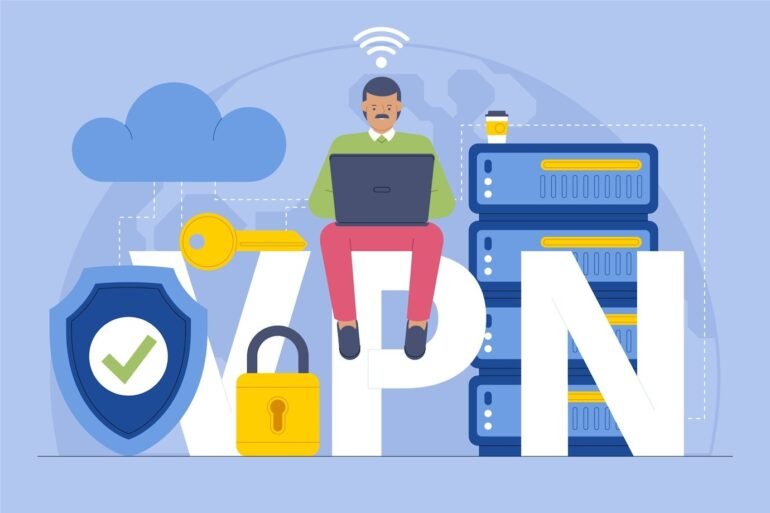A VPN (Virtual Private Network) is a simple software designed to protect your online privacy and make life more difficult for hackers by anonymizing your traffic and location. But you can also use it for many other things, e.g., fast and safe surfing. A VPN creates an encrypted tunnel to protect your private data and communications, hide your IP address, and allow you to securely use public Wi-Fi networks.
VPN, Tor, and residential proxies are all options for online privacy solutions, but VPNs offer the best balance of comprehensive security and speed. A VPN works like an invisibility cloak, hiding everything you do on your device and protecting you even from evil twin attacks.
A VPN stands for Virtual Private Network, and Microsoft developed the first VPN in 1996 to provide remote employees with secure access to the company’s internal network.
What does a VPN do?
Normally, when you try to access a website, your ISP (Internet Service Provider) receives the request and redirects it to your destination. However, connecting to a VPN redirects your internet traffic through a VPN server before sending it to your destination. When you connect to a VPN, the following will happen:
VPN protects your IP and masks your virtual location
IP addresses are used by websites and services to determine your location. After connecting to a VPN server, no IP address will be displayed. No one can see your location anymore because they can’t see your real IP address. People under authoritarian regimes should use VPNs to hide their IP addresses and provide extra security for sensitive communications. A VPN hides your IP address to break the metaphor.
VPN encrypts your data
All your internet traffic is encrypted when connected to a VPN server. VPN encryption protects your internet traffic and minimizes your online footprint. Encryption prevents hackers from seeing sensitive information that you enter on websites, like your passwords.
Types of VPN
VPNs fall into three main categories:
Remote access VPN
A remote-access VPN allows users to connect to a remote network using dedicated software. If you ever needed to log on to your office network, you also used a remote access VPN. It makes working safer and easier, as employees can access data and resources anywhere.
Personal VPN
Most consumer VPNs are classed as personal VPNs. The way it works is very similar to a remote access VPN, but instead of connecting to a private network with limited access (e.g., at work), you connect to your VPN provider’s servers for protection and privacy while surfing the internet.
Site-to-site VPN
Site-to-site VPNs are mainly used by businesses like large corporations. They allow users in selected locations to securely access each other’s networks. It’s a great way to connect all offices and securely share resources and information from different branches.
What should be notable while choosing a VPN?
Speed, Security, and Privacy
Of course, everyone wants their connections to be secure and their data to be private. But to have all this without losing speed? That’s the whole trick. So, make sure you are not compromising when choosing a VPN service. There’s no point in using unbreakable encryption if all your sites take a long time to load.
Paid vs. Free
It’s better to stay away when it comes to free VPNs. These providers usually don’t invest in their server network; consequently, their VPN connections might be unstable and leak users’ data. Sometimes, they may resort to selling their users’ data. So, look for a reliable VPN provider instead of looking for the cheapest option.



